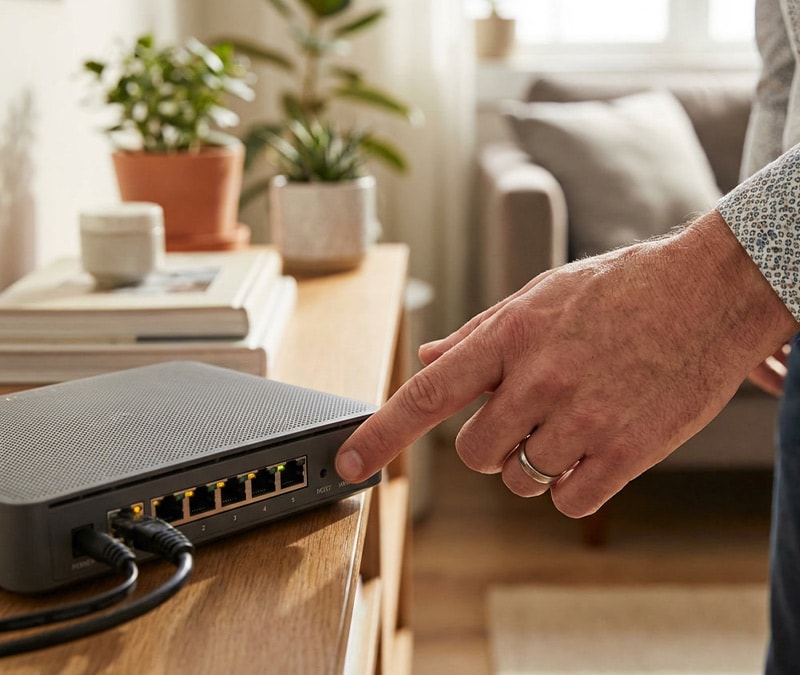Targeted attacks now moving into the IoT and router space
Recently, there have been reports about state sponsored, targeted attacks moving into the router and IoT security space. Read more to see how this affects you.

Recently, there have been reports in the media and online about state sponsored, targeted attacks moving into the router and IoT security space. While not an immediate threat to consumers, these kinds of attacks are examples of what could potentially be in store for router security in the coming months and years.
What does this mean for me?
Reports like these are reminders that we should pay more attention to the security of our router and home wi-fi. Once a home network is compromised via the router, an attacker can gain access to a treasure trove of information about you and your family, from just about any device connected to your home network.
This personally identifiable information can range from names, dates of birth, Social Security numbers, healthcare information, tax records and so much more. With this data in hand, attackers may be able to use stolen log in credentials to access your online accounts, use Social Security numbers to open new accounts in your name and could even get arrested and give out your information.
What is happening?
The United States Computer Readiness Team (US-CERT), an organization within the Department of Homeland Security responsible for analyzing and responding to cyber threats, has published a warning about the exploitation of network devices, including routers, by a state-sponsored attack group. For now, the targets lie within government and private-sector organizations, critical infrastructure providers, and the Internet service providers (ISPs) supporting these sectors. It’s also believed that small office home office (SOHO) users are being compromised as well.The FBI believes that cyber attackers are using compromised routers to conduct man-in-the-middle attacks to support espionage, extract intellectual property, maintain persistent access to victim networks, and potentially lay a foundation for future offensive operations.
What is a state sponsored attack group?
A state sponsored attack group is an organized group of hackers that are driven by intelligence gathering, disruption, sabotage, or financial gains. These groups may often be supported by a form of government.
These groups carry out what are called targeted attacks. In the past, these targeted attacks have been mostly linked to espionage. However, in recent times, the lines have started to blur, as we’ve seen a number of groups branch out beyond espionage.
How to stay protected:
For those who may be concerned, we have some tips and best practices that you can do on your own to help protect your home network and IoT devices:
- When setting up a new router, it is important to always change the default password to a unique, strong password and enable two-factor authentication, where possible.
- Use a WPA2 encrypted Wi-Fi network rather than an open hotspot at home, and create a guest Wi-Fi network for guests and unsecured IoT devices.
- Remember, just because your router may require a password, it does not mean it’s secure. Many routers have default credentials that can be accessed through a simple online search.
- Don’t use IoT devices to store sensitive information such as passwords or credit card numbers.
- When using an IoT device, turn off purchasing if not needed or set a purchase password.
What does this mean for me?
Reports like these are reminders that we should pay more attention to the security of our router and home wi-fi. Once a home network is compromised via the router, an attacker can gain access to a treasure trove of information about you and your family, from just about any device connected to your home network.
This personally identifiable information can range from names, dates of birth, Social Security numbers, healthcare information, tax records and so much more. With this data in hand, attackers may be able to use stolen log in credentials to access your online accounts, use Social Security numbers to open new accounts in your name and could even get arrested and give out your information.
What is happening?
The United States Computer Readiness Team (US-CERT), an organization within the Department of Homeland Security responsible for analyzing and responding to cyber threats, has published a warning about the exploitation of network devices, including routers, by a state-sponsored attack group. For now, the targets lie within government and private-sector organizations, critical infrastructure providers, and the Internet service providers (ISPs) supporting these sectors. It’s also believed that small office home office (SOHO) users are being compromised as well. The FBI believes that cyber attackers are using compromised routers to conduct man-in-the-middle attacks to support espionage, extract intellectual property, maintain persistent access to victim networks, and potentially lay a foundation for future offensive operations.
What is a state sponsored attack group?
A state sponsored attack group is an organized group of hackers that are driven by intelligence gathering, disruption, sabotage, or financial gains. These groups may often be supported by a form of government.
These groups carry out what are called targeted attacks. In the past, these targeted attacks have been mostly linked to espionage. However, in recent times, the lines have started to blur, as we’ve seen a number of groups branch out beyond espionage.
How to stay protected:
For those who may be concerned, we have some tips and best practices that you can do on your own to help protect your home network and IoT devices:
- When setting up a new router, it is important to always change the default password to a unique, strong password and enable two-factor authentication, where possible.
- Use a WPA2 encrypted Wi-Fi network rather than an open hotspot at home, and create a guest Wi-Fi network for guests and unsecured IoT devices.
- Remember, just because your router may require a password, it does not mean it’s secure. Many routers have default credentials that can be accessed through a simple online search.
- Don’t use IoT devices to store sensitive information such as passwords or credit card numbers.
- When using an IoT device, turn off purchasing if not needed or set a purchase password.

Cyber threats have evolved, and so have we.
Norton 360™ with LifeLock™, all-in-one, comprehensive protection against viruses, malware, identity theft, online tracking and much, much more.
Try Norton 360 with Lifelock.
Editorial note: Our articles are designed to provide educational information for you. They may not cover or protect against every type of crime, fraud, or threat we write about. Our goal is to increase awareness about Cyber Safety. Please review the complete Terms during enrollment or setup. Remember that no one can prevent all identity theft or cybercrime, and that LifeLock does not monitor all transactions at all businesses. The Norton and LifeLock brands are part of Gen Digital Inc. For more details about how we create, review, and update content, please see our Editorial Policy.





Want more?
Follow us for all the latest news, tips, and updates.